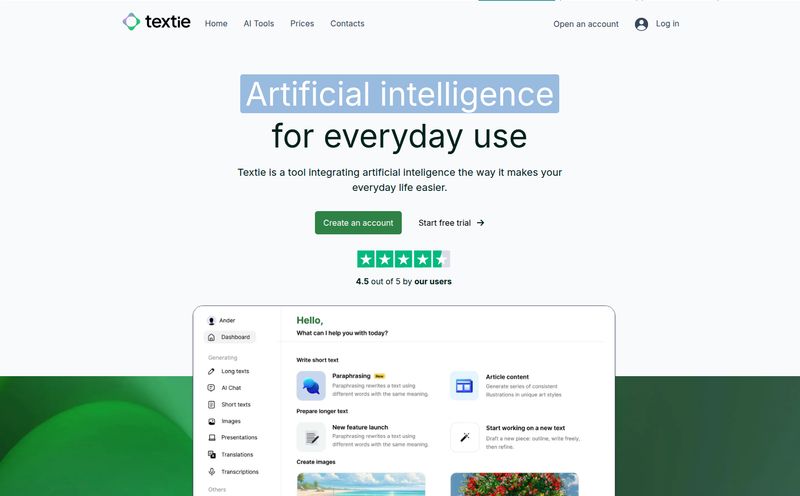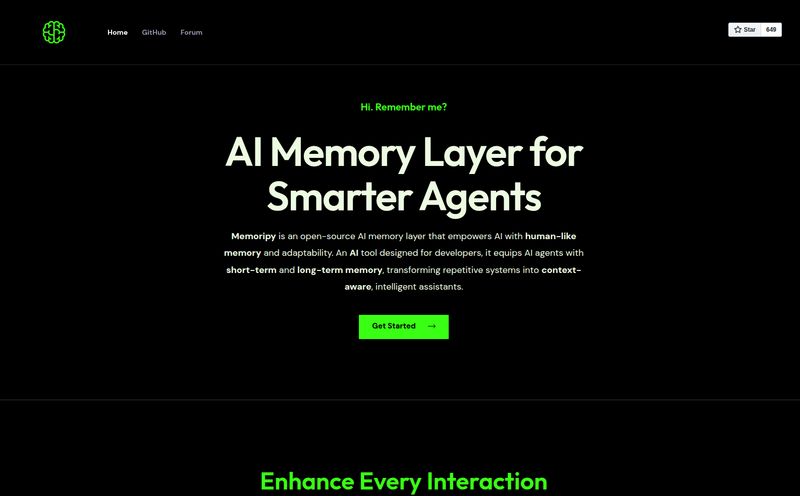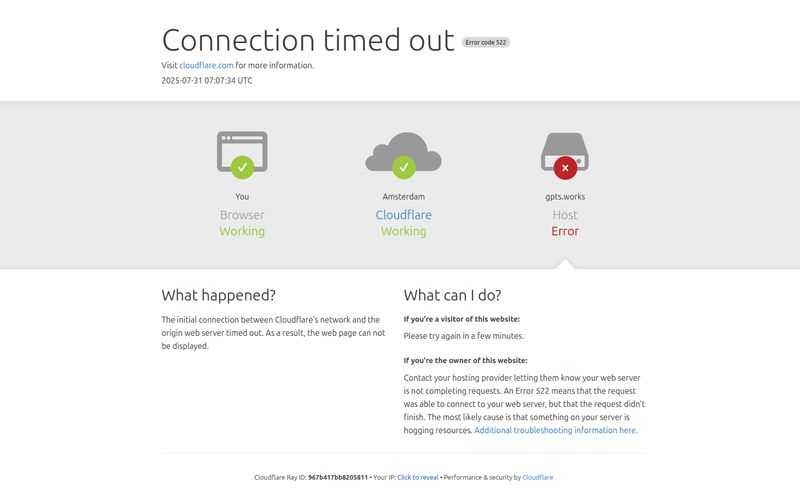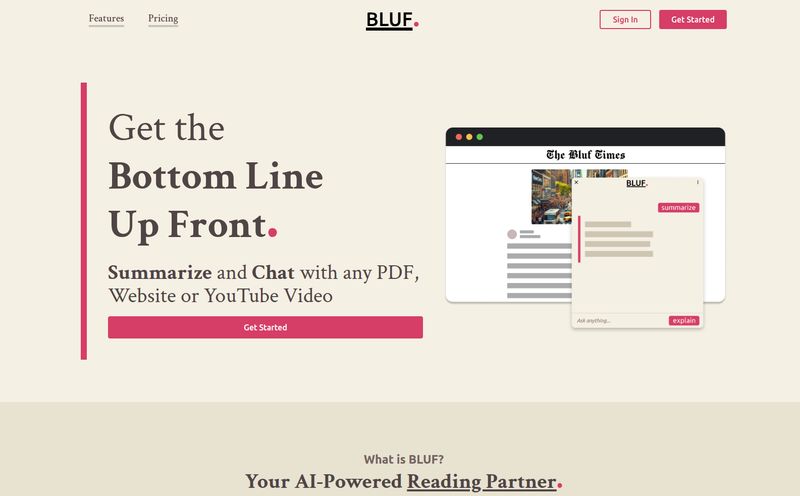If you're in the digital marketing world, or really any desk job, you know the feeling. That end-of-day, sandpaper-in-your-eyeballs sensation from staring at a screen for eight, ten, sometimes twelve hours. I've been in the SEO game for years, and the amount of text I consume daily—articles, research papers, competitor analysis, my own drafts—is just staggering. My optometrist is starting to recognize me on the street.
I’ve always been on the hunt for a good text-to-speech (TTS) tool to give my eyes a break. Most of them, frankly, sound like a GPS navigator from 2005 having a very bad day. Robotic, monotone, and completely butchering any word more complex than 'the'. So when I stumbled across NaturalReader, I was skeptical. But the name itself was a promise, right? Natural. I decided to give it a whirl, and I've got some thoughts.
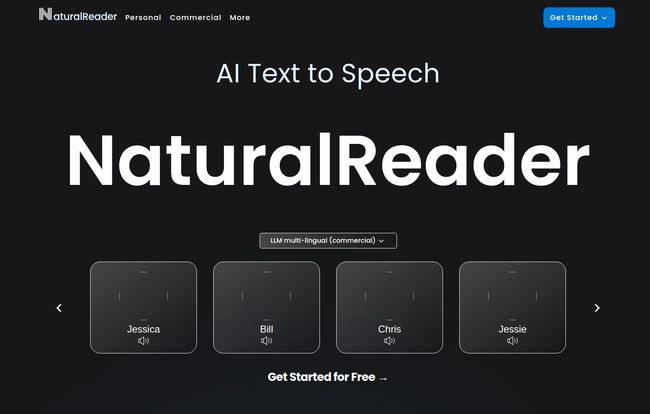
Visit NaturalReader
So, What Is NaturalReader, Really?
On the surface, it’s a text-to-speech platform. Simple. But that’s like calling a smartphone a device that makes calls. It really misses the point. NaturalReader is more of a complete ecosystem for turning text into audio. It’s not just one thing; it's a suite of tools for different people. They have their free online reader and mobile apps for casual use, a special 'Commercial WebReader' to make websites more accessible, and even an AI Voice API for developers. Trusted by 10 million users, apparently, so I'm not the only one kicking the tires.
It’s designed to take pretty much any text you throw at it—from a dense PDF report to a webpage or an e-book—and read it back to you in a surprisingly human-like voice. And that's where things get interesting.
The Features That Actually Make a Difference
A lot of SaaS tools love to throw a laundry list of features at you. But let's cut through the noise and talk about what makes NaturalReader stand out from the robotic crowd.
It Doesn't Sound Like a Toaster
This is the big one. The make-or-break for any TTS tool. NaturalReader uses what they call Content Awareness. Instead of just reading words, the AI tries to understand the context of the sentence. Is it a question? Is it an emphatic statement? This means the inflection and tone are way more realistic. You can even choose different voice styles like 'Cheerful', 'Angry', or 'Hopeful'. It’s the difference between hearing a story and just having a dictionary read to you.
Their LLM (Large Language Model) voices are another step up, offering some of the most sophisticated intonation I've heard from a consumer-grade tool. It's not perfect, but it's miles ahead of the competition. Somthing about hearing an article read with genuine-sounding curiosity keeps you engaged way longer.
Wait, It Can Clone My Voice?
Okay, this is the part that feels like it’s straight out of science fiction. NaturalReader has an AI Voice Cloning feature. Yes, you read that right. You can create a digital replica of your own voice. The implications for content creators, podcasters, or anyone needing to produce personalized audio at scale are massive. It's a premium feature, of course, but just the fact that it exists and is accessible is a huge deal. It's a bit wild to think about, and it raises some interesting questions, but for professional use cases, it’s a game-changer.
Your Content, Your Way
Practicality matters. I was really happy to see that NaturalReader supports over 20 different file formats. The big one for me is PDF support. I have folders upon folders of PDF case studies and research papers, and being able to just upload one and have it read to me while I make coffee is fantastic. It also boasts over 50 languages and more than 200 AI voices, so it’s not just for us English speakers. This global approach is smart and opens it up to a much wider audience.
Who's Actually Going to Use This?
I see a few clear groups who would get a ton of value from this.
- Students and Researchers: The free version is a godsend for getting through assigned readings and research papers without burning out your retinas. The Chrome extension is perfect for instantly converting articles to audio. It's also a powerful assistive tool for those with dyslexia or other reading difficulties.
- Content Creators & SEOs: This is us, folks. Imagine creating an audio version of every blog post you write. Instant accessibility boost, instant new content format. You can use the commercial AI voices to create clean voiceovers for YouTube videos or social media clips without needing expensive recording equipment or hiring a voice actor.
- Businesses and Website Owners: The Commercial WebReader tool can be embedded on your site, allowing visitors to listen to your content. This is a massive win for accessibility (and can contribute to better user engagement metrics, which Google loves).
The Price of a Good Voice
Alright, the question on everyone’s mind: what does it cost? NaturalReader operates on a freemium model. There is a genuinely useful free version that gives you a taste of the AI voices and basic functionality. It's great for personal use.
However, the real magic—the best voices, the commercial licenses, voice cloning, and the studio editor—is behind the paid plans. The website doesn't list a simple pricing grid on its main page, as the costs likely vary depending on whether you need a personal plan, a commercial license for a team, or API access. My advice? Start with the free tool to see if you like the workflow. If you find yourself using it daily, then it’s time to look into the Personal, Commercial, or Education plans that fit your specific needs by checking out their site directly. The investment could easily pay for itself in time saved and new content opportunities.
The Good, The Bad, and The Realistic
Look, no tool is a silver bullet. What I love about NaturalReader is its accessibility and the sheer quality of its top-tier voices. The free version is more than a demo; it’s a functional tool in its own right. But, and this is a key point, to unlock its full potential as a professional tool, you have to be willing to pay. Some of the most advanced features might also not be available across all 50+ languages, which is understandable but worth noting. And I saw a mention of 'not supporting video' in one section, which I take to mean you can't upload a video file to have its audio transcribed or replaced, you're primarily working with text and documents.
So, Is NaturalReader a Keeper?
For me, the answer is a resounding yes. It has fundamentally changed how I get through my 'reading list'. It's become my go-to for proof-listening to my own articles, catching awkward phrases that my eyes might skim over. It's my companion for 'reading' industry news while I'm walking the dog.
If you're just looking for a simple, free screen reader, it’s one of the best out there. If you're a creator or business owner looking to leverage audio content and improve accessibility, the commercial features are compelling and, in my opinion, well worth investigating. It's a powerful, versatile tool that finally delivers on the promise of a truly natural listening experience.
Frequently Asked Questions
- 1. Is NaturalReader actually free to use?
- Yes, there is a completely free version of NaturalReader with access to some AI voices and a daily listening limit. It's great for personal use. The more advanced features and premium voices require a paid subscription.
- 2. Can I use the voices from NaturalReader on my YouTube channel?
- To use the voices for public or commercial purposes like YouTube videos, you need to purchase a Commercial License. The free version is for personal use only.
- 3. What kind of files can I upload?
- NaturalReader supports over 20 formats, including PDF, Docx, TXT, EPUB, and more. You can also paste text directly or use the Chrome extension to read webpages.
- 4. How good is the AI Voice Cloning?
- The AI Voice Cloning is a powerful, premium feature. It allows you to create a high-quality digital replica of a voice from a short audio sample. It's designed for professional applications and requires a commercial plan.
- 5. Does it work on my phone?
- Absolutely. NaturalReader offers mobile apps for both iOS and Android, so you can listen to your documents and articles on the go.
- 6. What is 'Content Awareness' and does it really work?
- Content Awareness is the AI's ability to analyze a sentence's context to apply more natural-sounding intonation and emphasis. Based on my experience, it works surprisingly well and is a major reason why NaturalReader's voices sound more human and less robotic than many other TTS tools.
References and Sources
- NaturalReader Official Website
- The Ethics Of AI Voice Cloning (Forbes) - for further reading on the topic.
